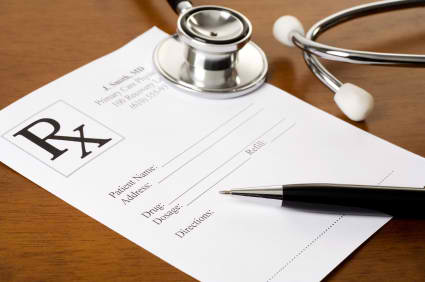Inpatient Crack Cocaine Treatment Centers and Rehab
Crack cocaine, the solid form of cocaine that is produced by mixing powder cocaine with baking soda and water to make a highly concentrated and highly addictive drug, is used regularly by about a half-million Americans. If you or someone you know abuses or is dependent upon the drug, consider a treatment program to help achieve abstinence and prevent relapse.
Residential Crack Cocaine Treatment Vs Outpatient Services
 Treatment for crack cocaine addiction can occur either in a residential treatment center, where patients live in a monitored environment, or in an outpatient setting, where patients continue to live independently and voluntarily receive treatment from providers on a regular basis.
Treatment for crack cocaine addiction can occur either in a residential treatment center, where patients live in a monitored environment, or in an outpatient setting, where patients continue to live independently and voluntarily receive treatment from providers on a regular basis.
Many behavioral treatments prove to be effective in both residential treatment centers and outpatient settings. The initial abstinence period after using the drug usually requires detoxification in a hospital or inpatient treatment center. At a treatment center, medications are available to address physical withdrawal symptoms.
Crack cocaine rehab centers also are beneficial for individuals suffering from severe mental illness along with addiction. Such patients require a higher degree of structure and monitoring than outpatient treatment programs offer.
Do I Need an Inpatient Crack Cocaine Rehab Facility?
If your level of abuse or dependence on the drug is severe, you might require a stay in an inpatient crack cocaine rehab facility. Additionally, if you have relapsed after receiving outpatient treatment, then you might benefit from inpatient treatment. If you also suffer from a mental illness, inpatient treatment at a rehab facility is recommended.
Crack cocaine rehabilitation facilities provide a constant level of medical monitoring, offer a high level of guidance, and interrupt the lifestyle contributing to ongoing use. At a crack cocaine rehab facility, you can detox from the drug in a controlled environment, with medical and support personnel available at all times.
Private Crack Cocaine Rehabs and Confidentiality
In the United States, the federal Health Insurance Portability and Accountability Act (HIPAA) protects your privacy by defining your rights related to your health information. Under HIPAA, your right to confidentiality protects the sharing of information related to your addiction or its treatment. Even private crack cocaine treatment programs must comply with HIPAA and keep your information confidential.
How Long Do Inpatient crack cocaine Programs Take?
“The duration of inpatient rehabilitation stays is longer, since effective, long-lasting treatment requires that medical, psychological and social issues be addressed. “
Inpatient treatment in a hospital setting for the medical supervision of detoxification typically ranges from 3 to 28 days. However, the duration of inpatient rehabilitation stays is longer, since effective, long-lasting treatment requires that medical, psychological and social issues be addressed.
Inpatient crack cocaine rehab programs vary in length, though the longer the length of stay in treatment, the better the outcome, statistically. Intensive, highly structured residential programs, or therapeutic communities, typically require a 6-month to 12-month stay. Psychiatric inpatient programs, or therapy-based programs, usually require a 4-week to 12-week stay for adults and longer than 12 weeks for adolescents.
What Happens During a Crack Cocaine Treatment Program?
 Detoxification, in which use of the drug is stopped, is the first step in crack cocaine treatment. This usually occurs in a hospital environment, though detoxification can occur in the first phase of an inpatient rehab program.
Detoxification, in which use of the drug is stopped, is the first step in crack cocaine treatment. This usually occurs in a hospital environment, though detoxification can occur in the first phase of an inpatient rehab program.
A medical assessment to identify co-occurring medical or mental health problems takes place as soon as possible. These other issues will be addressed after detox is complete to help the patient live a drug-free life.
Specifics of the treatment program depend on the setting and the patient’s psychosocial needs. Individual and group counseling usually occurs. Cognitive behavioral therapy and use of motivational incentives are often employed. For some, vocational rehabilitation begins as well.
Payment Options for Crack Cocaine Addiction Treatment
The cost of crack cocaine treatment varies by location and type of treatment. The cost of treatment can be expensive, and health insurance often does not provide comprehensive coverage for addiction treatment. However, insurance companies are changing their benefits policies due to legislative mandates, so treatment might be covered.
If the patient does not have health insurance coverage, about 75 percent of American substance abuse treatment programs provide free or discounted services to some patients.
Crack Cocaine Treatment Program Near Me vs. Different City or State
Advantages of a stay at a crack cocaine treatment center near home are primarily related to the possible emotional support that nearby friends and relatives may provide. Participation in an inpatient program located in another city or state provides increased anonymity and privacy. Another advantage of treatment away from home is the interruption of lifestyle patterns that have contributed to the drug-addicted behaviors.
Staying Clean and Sober
Even after the physical symptoms of crack cocaine addiction are treated, psychological symptoms of withdrawal and addiction remain. You will likely require follow-up outpatient treatment services, such as participation in a support group or sessions with a counselor, to prevent relapse. In some cases, a sober living environment – a group home environment with ongoing sobriety support – might be needed.
Help for Crack Cocaine Addiction
If someone you love is addicted to crack cocaine, you can help by refraining from codependent actions that support addictive behaviors. Stop providing financial support for the crack cocaine addict, and stop making excuses for or accepting the addict’s behavior. Intervention might be necessary if the addict has not yet agreed to face their problem and seek treatment.
More About the Crack Cocaine Rehabilitation
Crack cocaine treatment is complex, requiring treatment of physical issues caused by crack cocaine use, psychological symptoms associated with addiction, and social issues that contribute to an individual’s substance use or that were caused by the misuse of the drug. Relapse is the norm, and recovery involves changes in lifestyle to encourage abstinence and in ways of thinking to aid in coping with withdrawal symptoms.
Narcotics Anonymous

Aftercare is an essential element in the treatment process. For many, behavioral changes are effectively addressed through a combination of group support, such as Narcotics Anonymous, individual therapy, and improvement of educational and employment opportunities. For some, moving into a sober living community enhances the ability to withstand cravings. For others, cravings are minimized by alternative therapies such as acupuncture.
Unfortunately, pharmacological solutions to crack cocaine addiction do not currently exist, though research is underway to explore medications to effectively curb cravings for crack cocaine.
Make the Call and Get a Fresh Start Today
If you or someone you know suffers from crack cocaine addiction and is ready to make a change, don’t hesitate to call us and learn what treatment options are available. We can help you find the best crack cocaine rehab program that will offer a fresh start. Call us at 1-888-851-2649 Who Answers? today.
